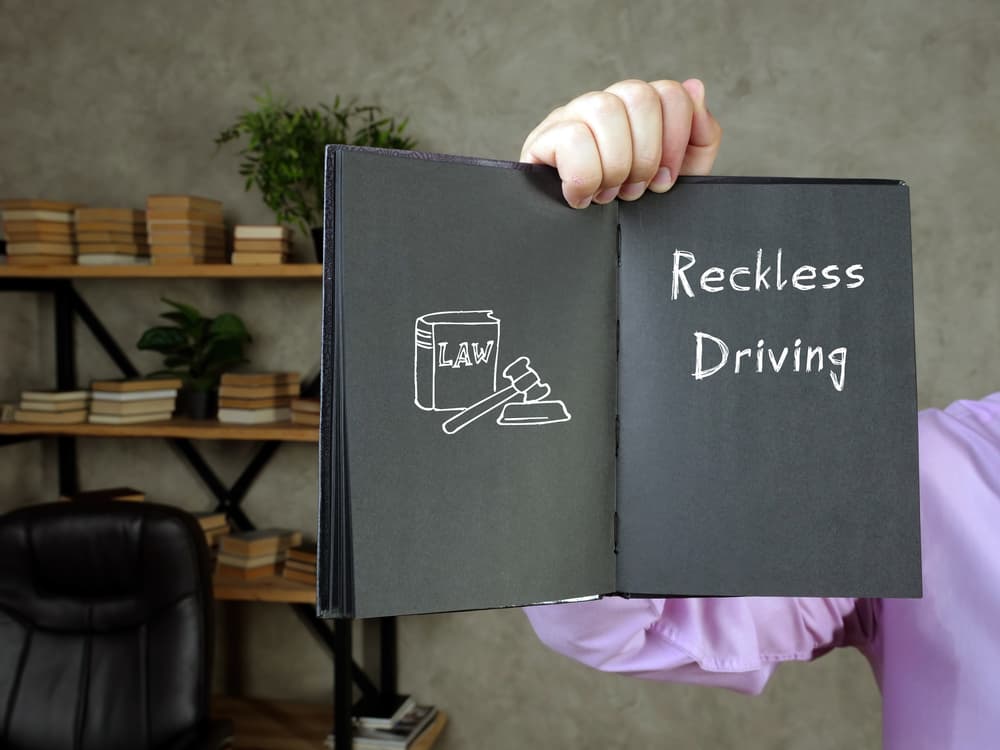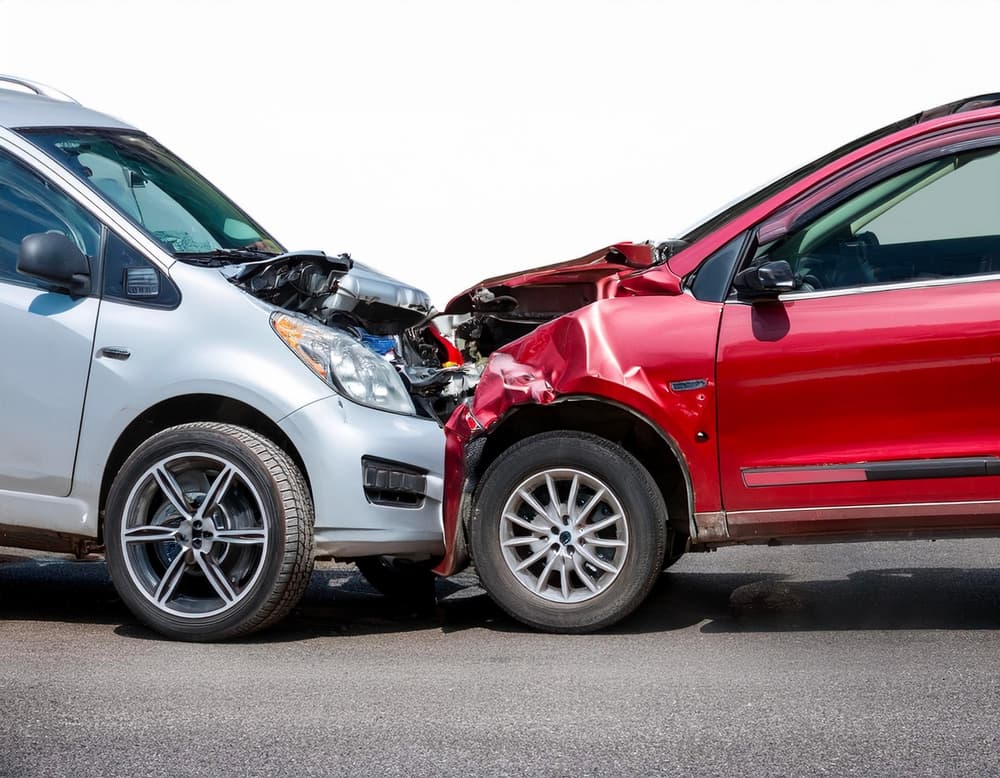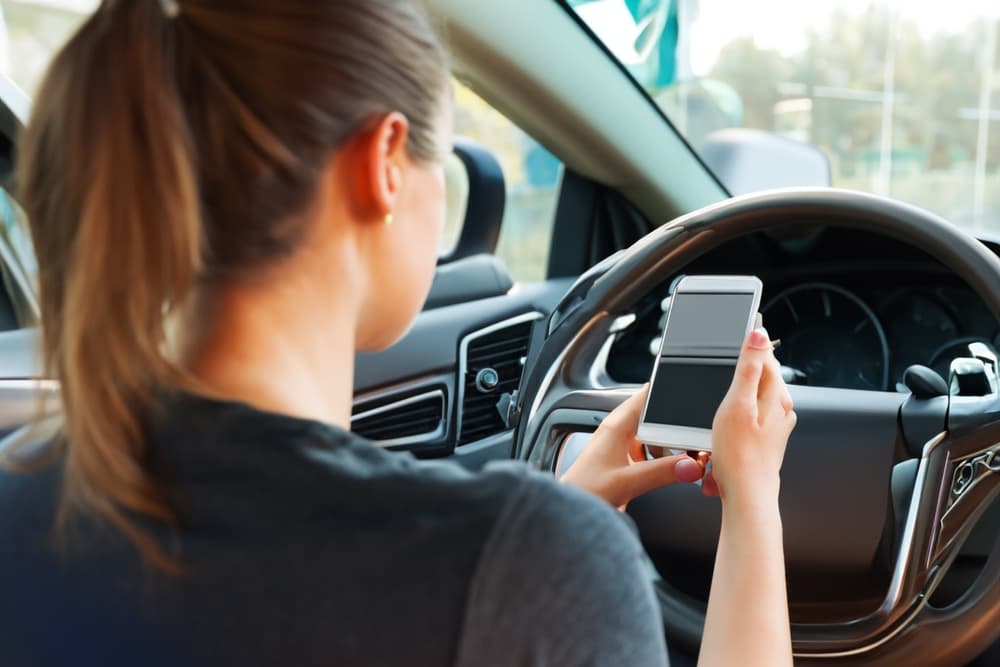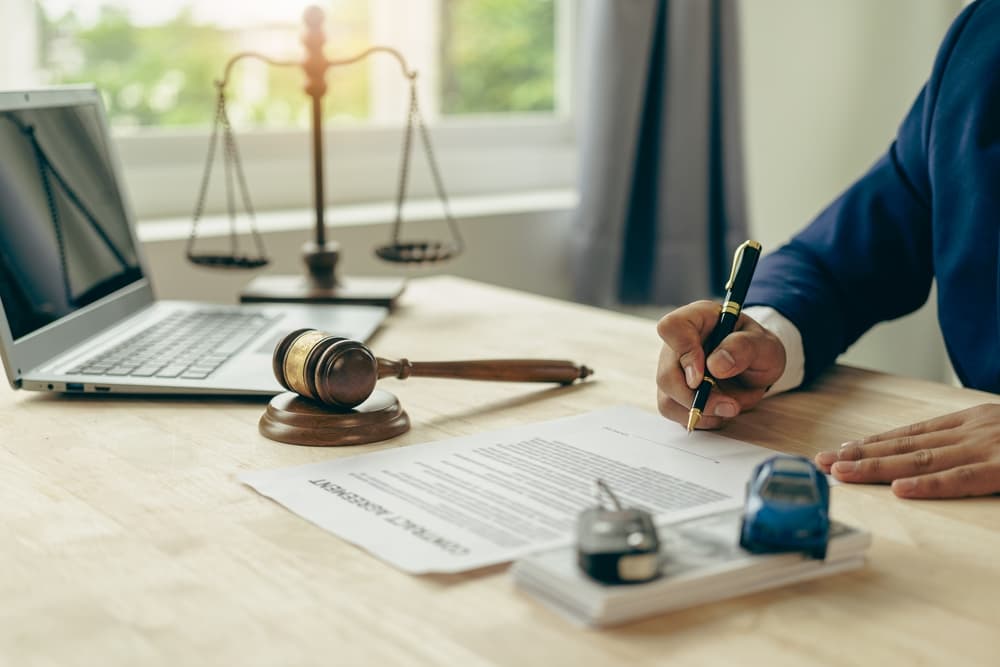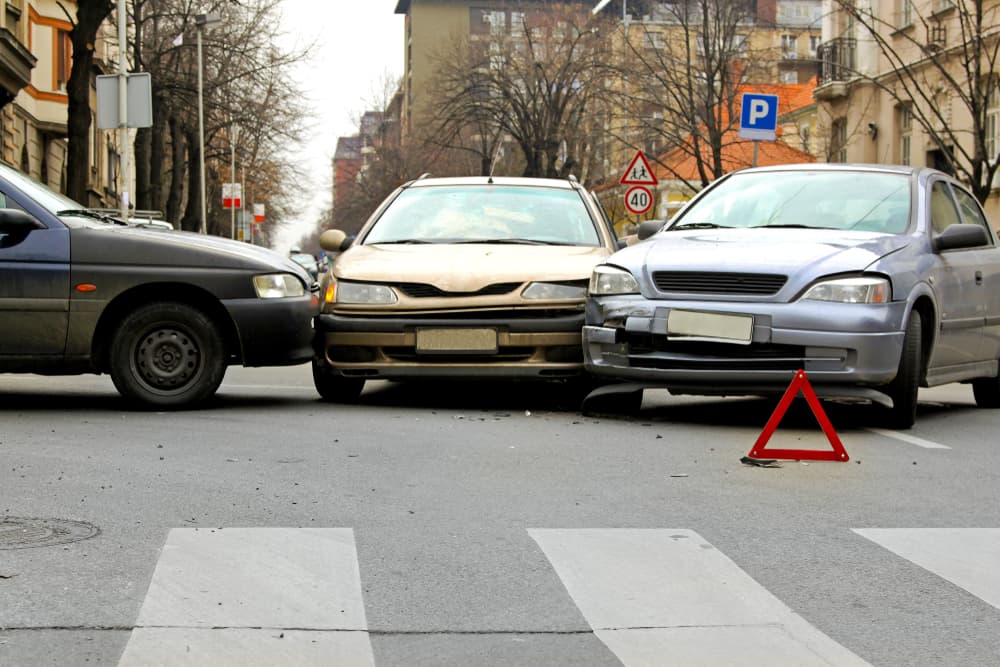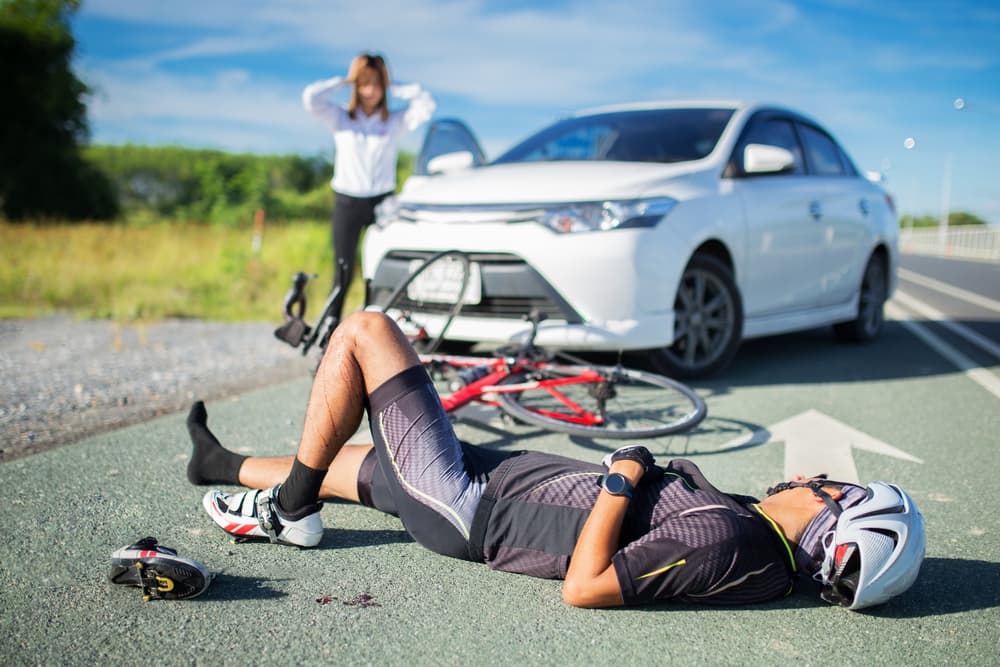Reckless driving is a term often heard in traffic law discussions, but many people may not fully understand its implications. It is a serious offense that endangers lives and property, and those who engage in it face significant legal consequences.
If you are involved in a car accident caused by reckless driving, you should understand your rights and legal options. A car accident attorney can help protect your rights and best interests and pursue justice and compensation.
Defining Reckless Driving
Reckless driving is generally defined as operating a motor vehicle in a manner that shows a willful or wanton disregard for the safety of others. This means the driver acts with an awareness of the potential danger but chooses to ignore the risks, thereby putting others at significant risk of harm.
Laws vary by state; therefore, the exact definition differs in every state. It is important for drivers to understand what reckless driving is and how to avoid it to keep themselves and others safe.
What Constitutes Reckless Driving?
Several actions can qualify as reckless driving, depending on the circumstances and state laws. Some of the common examples that can be deemed reckless include:
Excessive Speeding
You’ll find a posted speed limit everywhere you go and on every road you drive on. Speed limits are set at a certain number based on several factors, such as the type of road, traffic volume, pedestrian activity, and road design.
Driving far above the posted limit, particularly in areas with high pedestrian traffic or during adverse weather conditions, can be considered reckless. Speeding has many consequences, including loss of control over the vehicle, reduced effectiveness of vehicle safety features like airbags, and increased crash severity.
Aggressive Driving
Many dangerous driving actions can fall into the category of aggressive driving, including tailgating (following a vehicle too closely), weaving in and out of traffic, or using a vehicle to intimidate other drivers. Aggressive driving is also referred to as road rage and often occurs when drivers are stressed or frustrated with traffic.
Running Red Lights and Stop Signs
Red lights and stop signs are strategically placed to help with traffic flow and safety. Ignoring traffic signals violates traffic laws and significantly increases the likelihood of collisions.
Street Racing
Street racing is particularly common. Although it can happen at any time of day, many choose to race on open roads or late at night. Participating in unauthorized and often high-speed races on public roads is inherently reckless and illegal.
Driving Under the Influence
Driving under the influence is illegal in all states, as it puts everyone on the road in danger. Operating a vehicle while impaired by alcohol or drugs drastically reduces a driver’s ability to react appropriately and increases the risk of accidents. The action of getting behind the wheel while impaired is often deemed to be reckless.
Distracted Driving
While many consider distracted driving negligent, in some cases, it can be reckless. Activities like texting, eating, or using a GPS while driving can rise to the level of recklessness, especially if they result in endangering others.
Driving without Regard for Road Conditions
Weather, like heavy rain and snow, can make roads particularly dangerous. Speeding during inclement weather or ignoring other hazardous road conditions demonstrates a disregard for safety.
Wrong-Way Driving
It is common sense to drive with the flow of traffic, but many people do not do this. Entering and driving on the wrong side of the road is reckless and potentially deadly.
Common Types of Accidents Resulting from Reckless Driving
Reckless driving often leads to severe accidents. Common accidents resulting from reckless actions include:
- Head-on collisions: These accidents occur when a driver crosses into oncoming traffic, often due to excessive speed, wrong-way driving, or impaired judgment.
- Rear-end accidents: Tailgating and sudden braking can lead to rear-end crashes, especially in congested traffic.
- T-bone accidents: Running red lights or stop signs frequently results in t-bone collisions (also called side-impact crashes) at intersections.
- Multi-vehicle pile-ups: Reckless driving in heavy traffic or adverse weather conditions can trigger multiple vehicle chain-reaction accidents.
Additionally, some accidents don’t just involve vehicles. Reckless driving can result in accidents with motorcycles, cyclists, and pedestrians, who are all especially vulnerable and often unprotected in the event of a crash.
Why Reckless Driving Accidents Are So Dangerous
Actions that constitute reckless driving are frowned on for good reason. Reckless driving accidents are particularly dangerous due to the following factors:
- High impact forces: Excessive speed or head-on collisions result in significant forces that increase the severity of injuries.
- Unpredictability: Reckless drivers act erratically, typically giving other road users little time to react.
- Widespread harm: Such accidents can cause harm to multiple vehicles, pedestrians, and property, amplifying their consequences.
In addition, the behaviors associated with reckless driving, such as speeding and impaired driving, are among the top causes of fatal accidents.
Is Reckless Driving Illegal?
Yes, reckless driving is against the law in every state in the U.S. Most states classify it as a misdemeanor, though it can be elevated to a felony in cases involving extreme negligence, repeat offenses, or severe injuries and fatalities. Penalties for reckless driving depend on the circumstances, but may include:
- Fines ranging from a few hundred to several thousand dollars
- Jail time, particularly in severe cases involving injury and death
- Suspension or revocation of a driver’s license
- Increased insurance policy premiums
- Points added to the driver’s record, potentially leading to further penalties
So, if a reckless driver causes an accident, they may face civil and criminal liability for breaking the law.
Evidence Used to Prove Reckless Driving
Depending on how you pursue compensation, you may need to establish the at-fault driver’s fault. Proving reckless driving requires demonstrating that the driver acted with a willful or wanton disregard for the safety of others. It is often established by providing strong evidence.
Evidence most often used in reckless driving accident situations includes:
Witness and Expert Testimonies
Eyewitnesses, passengers, or other drivers can describe what they observed, such as excessive speeding or erratic maneuvers. Additionally, expert witnesses, like accident reconstruction specialists, can provide insights into how the driver’s actions caused or contributed to the crash.
Surveillance or Dashcam Footage
Surveillance or dashcam footage is another critical piece of evidence. Traffic cameras or recordings from nearby vehicles may visually document the reckless behavior, capturing actions like running red lights or weaving through traffic.
Police Reports
Police reports can provide valuable information as officers document their observations at the scene, including any traffic violations, citations, or signs of reckless conduct.
Vehicle Speed and Movements
Speed and vehicle movements are often analyzed through black box data and evidence from the crash site.
Event data recorders in modern vehicles can reveal critical details, such as the car’s speed and braking patterns leading up to the collision. Skid marks, tire tracks, and vehicle and roadway damage also provide clues about whether the driver was operating recklessly.
Traffic Law Violations
Traffic law violations frequently serve as key evidence. Actions such as speeding significantly over the limit, running stop signs or red lights, illegal passing, or tailgating demonstrate disregard for road safety rules.
Driver Behavior
The at-fault driver’s behavior can be scrutinized. Aggressive driving, impairment due to alcohol or drugs, and distractions like texting or using a phone while driving are strong indicators of recklessness.
Damage to Vehicles and Property
The extent of damage to vehicles and property also helps build the case. Severe vehicle damage or destruction of surrounding property can indicate high-speed or violent impacts, supporting claims of reckless driving.
Injuries to Parties Involved
Injuries sustained by victims can also be used as evidence. The severity and nature of injuries often align with reckless driving behaviors, such as collisions involving excessive speed or failure to yield to pedestrians. Medical records documenting these injuries further support the claim.
Cell Phone Records
Cell phone records are frequently used to prove distracted driving. Records of texting or phone use at the time of the crash show that the driver was not paying full attention to the road, a key element of reckless driving.
Audio Evidence
Audio evidence, such as recordings from 911 calls, may provide real-time accounts of the driver’s reckless behavior.
Seeking Compensation as a Victim of Reckless Driving
Victims of reckless driving accidents can pursue compensation for their injuries and losses. Compensation for a reckless driving accident may include:
- Medical expenses: This covers medical needs such as hospital bills, surgeries, medications, and therapy. If ongoing treatment is needed, damages can include future medical needs.
- Lost income: Compensation for income lost due to time off work. Also, if injuries impact your ability to earn a living, you can pursue compensation for diminished or lost earning potential.
- Pain and suffering: Non-economic damage awards for physical pain, emotional distress, and reduced quality of life.
- Property damage: Reimbursement for the repair or replacement of damaged vehicles and other personal property.
Additionally, a reckless driving accident case may qualify for punitive damages based on state requirements. Unlike compensatory damages, which compensate victims for their injuries and losses, punitive damages are imposed when the defendant’s grossly negligent, intentional, or reckless conduct causes harm.
The value of your claim will depend on several influential factors, such as:
- The type of injury you sustain and the severity of your injuries
- The cost of your medical treatment
- Whether you require ongoing medical care
- The total for your lost earnings
- Whether you can return to work and in what capacity
- The mental and emotional impact of your accident and injuries
- Any other monetary and non-monetary loss you sustain from your accident
A car accident attorney can thoroughly investigate your claim to calculate your damages properly. It helps ensure you receive adequate financial recovery and have the resources you need to continue with your medical treatment and plan for your future.
The Importance of Working with a Car Accident Attorney for Reckless Driving Situations
Navigating the legal process following a reckless driving accident can be challenging, especially when dealing with insurance companies and complex legal claims. A car accident lawyer provides invaluable assistance by:
- Building a strong case: Attorneys investigate your accident and gather pertinent evidence to establish the at-fault driver’s negligence and substantiate your losses.
- Negotiating with insurers: Negotiation is often part of the process to secure financial recovery. Experienced attorneys can counter lowball settlement offers and advocate for fair compensation.
- Handling legal procedures: From filing paperwork to meeting court deadlines, an attorney ensures all legal requirements are met. Having a lawyer helps avoid mistakes and potential setbacks.
- Maximizing your compensation: Attorneys evaluate the full scope of damages to ensure you receive adequate compensation for all present and future losses.
- Providing peace of mind: Attorneys understand victims’ challenges after a serious accident. Legal representation allows victims to focus on recovery while their lawyer handles the complexities of the case, bringing some necessary peace.
Car accident victims who have legal representation typically reach much better case results than those who choose to continue with their claims unrepresented. A car accident lawyer can bring the training, skill, experience, and resources you otherwise would not have. Hiring an attorney levels the playing field and gives you a significant advantage.
If You are the Victim of a Reckless Driving Accident, Seek Legal Representation Right Away
Reckless driving accidents can leave you facing physical, emotional, and financial hardships. Seeking legal help ensures that you receive the support and compensation you deserve. A qualified personal injury attorney not only increases the likelihood of a favorable outcome but also alleviates the stress of wondering what to do next.
If you or a loved one has suffered an injury in a reckless driving accident, do not hesitate to seek legal assistance. By working with a knowledgeable legal professional, you can gain a clear understanding of your rights. An experienced attorney can guide you through the process, fight for your rights, and help rebuild your life. Contact a car accident lawyer as soon as possible to discuss your case and take the first step toward justice and recovery.
